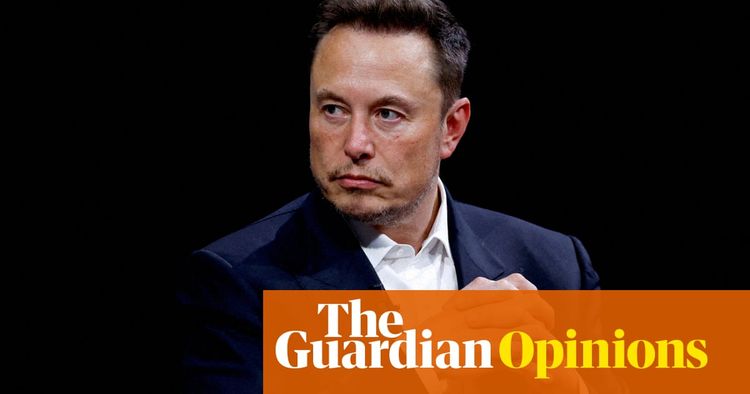Three cheers for the Delaware judge who stood up to Elon Musk

The ruling from the Delaware court of chancery by Kathaleen McCormick questions if the wealthiest man in the world was compensated too much. It's clear that the incentive package presented to Elon Musk at Tesla in 2018, which could have been worth $55.8 billion, was excessive and not needed to keep him at the company. This ruling was deemed "unfair" to other shareholders since it had a negative impact on their shares. The 200-page judgment provides a compelling case that supports McCormick's stance. It's difficult to disagree with her argument.
Musk and his group of supporters are understandably very upset. Tesla's CEO recommends incorporating in either Nevada or Texas if you want shareholders to have a say in decisions. This is because back in 2018, the majority of shareholders, 73%, approved of the current scheme. Many people on Musk's chat forum, X, have expressed that they would gladly support the scheme again today because of Musk's successful performance and Tesla's outstanding growth, increasing in value by an impressive $600 billion. It's important to note that in 2018, the electric vehicle company was only worth around $50 billion and there was a lot of debate about its financial stability.
However, it is not entirely accurate to claim that shareholders approved all aspects of the situation. It's important to understand the intricacies and gradual progression of McCormick's ruling. First and foremost, McCormick needed to establish that Musk's 22% ownership stake in Tesla provided him with significant control and sway over the company. This was relatively easy to demonstrate, as Musk held both the chairman and CEO positions and had close relationships with key board members involved in negotiations for Tesla.
The second step involved questioning the fairness of the incentive package, especially since there was a controlling status involved. The Delaware courts could change who needed to provide proof if there was a vote from all informed shareholders. Unfortunately, Tesla and the defendants did not pass this test. They provided a proposal that was full of inaccuracies, such as misrepresenting certain directors as independent and leaving out crucial details about the process.
The judge is absolutely right about the absence of objectivity. Ira Ehrenpreis, who is in charge of talks for Tesla, has been doing business with Musk for 15 years. One other member of the team, Antonio Gracias, has had a relationship with Musk spanning 20 years and frequently spends vacations with his family. A third member, Todd Maron, serves as the organization's chief legal officer and was formerly Musk's divorce attorney. According to reports, Maron became emotionally moved during his deposition by his deep admiration for Musk. This sort of scenario appears to be much too friendly for comfort.
McCormick believed that the award process had significant issues, which led him to conclude that it was "deeply flawed." Essentially, Musk suggested the amount and design of his possible rewards, and the committee responsible for compensation made compromises that were not genuine as per the judge's evaluation.
The discussion then focused on whether the award was fair in terms of its value. The board believed that awarding Tesla and keeping Musk as its leader would lead to significant growth. However, McCormick questioned this argument by making a few logical points. Firstly, Musk already had a strong motivation to strive for transformation since he held a 20% stake, meaning that a $50bn increase in Tesla's market value would bring him $10bn. Secondly, Musk had no intention of leaving. Lastly, the incentive program did not require him to dedicate a particular amount of time to the company.
The judge pointed out that the board failed to question whether the $55.8 billion plan was necessary for Tesla to achieve its goals and keep Musk on board. It's possible that the board was swayed by the positive language used or Musk's popularity and overlooked this important consideration. The main issue is that by being overly generous with Musk, the directors ended up neglecting the interests of regular shareholders.
The decision made by the court states that the share options should be cancelled. Tesla has the option to either contest the decision or come up with a fresh proposal, which should have proper disclosures on independence. It's commendable that the judgment has brought some sense back into the system of granting executive incentives in listed companies. This system has become increasingly unreasonable mainly because the independent directors have become very timid.
A few years back, Warren Buffett, another wealthy individual, commented that when searching for directors, CEOs do not pick pit bulls but rather choose a cocker spaniel. This statement is spot-on. The role of an independent director is supposed to be all about advocating for the shareholders' interests. If you are incapable of acting independently, then you have no business being in such a position. Don't act like a member of a cult, as we saw happen at Tesla. Let's be real - $55.8bn was certainly ridiculous.









































